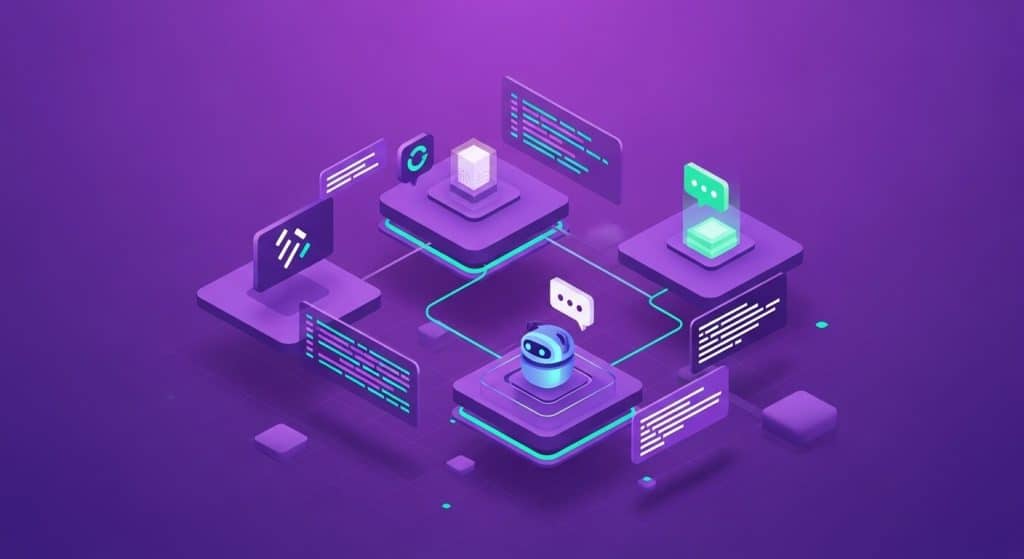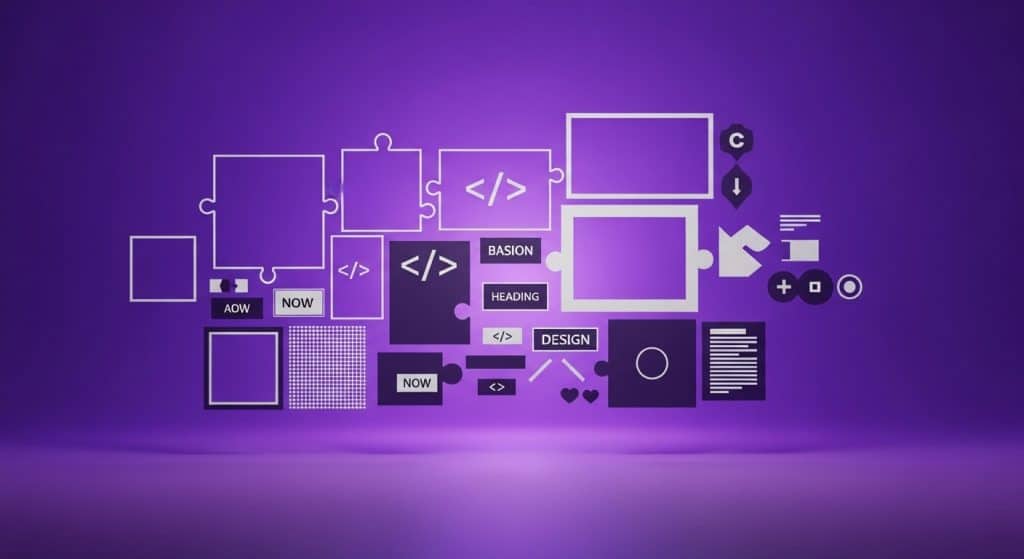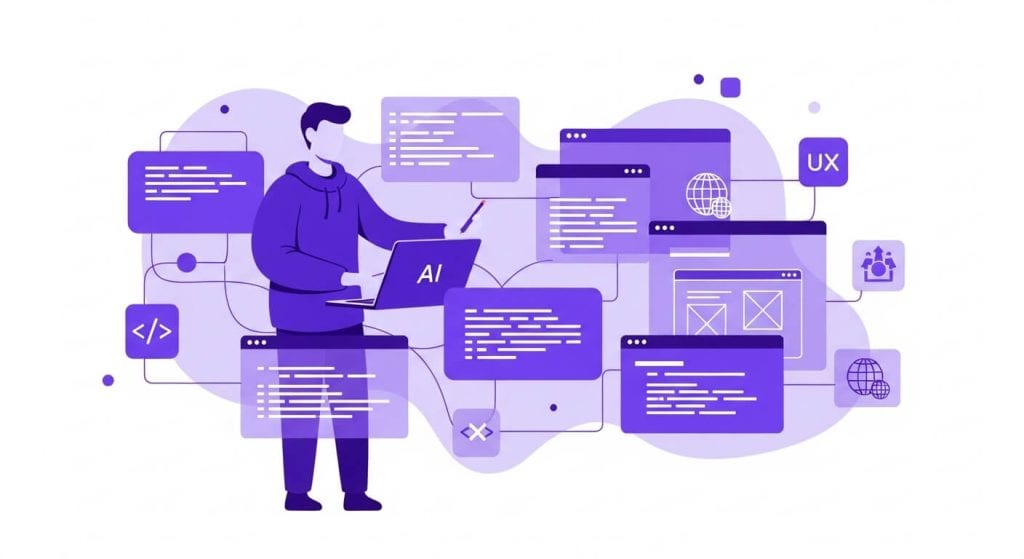AI is transforming how we build websites, write content, and run digital businesses. One of the most revolutionary tools in this space is ChatGPT — a language model developed by OpenAI that can write text, solve problems, and even generate code.
But how far can it go?
Can ChatGPT build a full website from scratch? Can it replace a developer or designer? And what are its limitations in 2025?
Let’s break it all down in this complete, no-hype guide.
The Growing Role of AI in Web Development

Until a few years ago, building a website meant either hiring a developer, learning to code, or using drag-and-drop builders like Wix, Squarespace, or WordPress. Today, the rise of generative AI has introduced a new option: asking a tool like ChatGPT to help you build.
ChatGPT doesn’t build websites in the traditional sense — it doesn’t have access to servers, it doesn’t host or deploy files, and it doesn’t design visual layouts directly in your browser. But what it can do is surprisingly powerful: it can generate the building blocks of a website faster than ever before.
It can act as a strategist, copywriter, frontend developer, and technical support assistant — all rolled into one. And for businesses that want to speed up development, reduce costs, or generate content at scale, this is a huge advantage.
So, What Exactly Can ChatGPT Do?

Let’s look at how ChatGPT contributes across the entire website creation process — from idea to execution.
1. Strategy and Planning
Before writing a single line of code, every website needs a plan. ChatGPT can help define the purpose of your site, who it’s for, and how it should be structured.
You can ask questions like:
- “What pages should a consulting agency include on their site?”
- “How should I organize an eCommerce product catalog?”
- “What’s a good user flow for a SaaS landing page?”
In response, ChatGPT can provide you with a complete sitemap, suggestions for content hierarchy, and even strategies for conversion optimization — all tailored to your niche.
2. Content Creation
Content is one of the most time-consuming parts of any website. Homepages, About Us pages, product descriptions, FAQs, contact messages — they all need to sound professional, clear, and aligned with your brand voice.
This is where ChatGPT truly shines.
By feeding it a prompt like “Write an About page for a solar energy startup,” it can return a full-length, human-sounding paragraph within seconds. It can help with:
- Headline writing
- Page content
- CTAs (Calls to Action)
- SEO meta descriptions
- Blog outlines and full articles
- Legal pages like Privacy Policy or Terms of Service (with disclaimers)
You can even ask it to rewrite content in a specific tone — casual, persuasive, professional, or even humorous.
3. Code Generation
One of the most underestimated uses of ChatGPT is code assistance. You can ask it to generate full HTML pages, style them with CSS, or create JavaScript functions for common features like:
- Responsive menus
- Contact forms
- Interactive buttons
- Accordions or tabs
- Animations on scroll
- Newsletter signup boxes
The model is also capable of helping with WordPress theme development, including:
- Template customization (
header.php,footer.php,single.php) - WordPress hooks and shortcodes
- Custom CSS or JavaScript injections
- WooCommerce tweaks
While the code it writes is generally clean and usable, it’s not always production-ready — so a developer should always review and test it before launch.
What ChatGPT Can’t Do — And Why It Matters

Despite its versatility, ChatGPT is not a full substitute for a web development stack or a human expert. It lacks:
- Visual editing ability: It can’t use page builders like Elementor, Webflow, or Framer visually.
- Deployment tools: It doesn’t deploy sites to servers, set up hosting, or manage DNS records.
- Design judgment: It can describe layouts, but not make pixel-perfect designs or visually balance typography, white space, and brand identity.
- CMS integration: It won’t install WordPress or build a Shopify store — it can only describe how to do it or generate code you’ll have to paste in manually.
- Security awareness: While it understands general best practices, it won’t anticipate nuanced security flaws in real-world environments.
That means if you’re a non-technical user, ChatGPT alone won’t be enough to launch a functional, secure, and well-designed site. But it can dramatically reduce your reliance on external tools, speed up your workflow, and lower costs.
Who Can Benefit the Most From Using ChatGPT to Build a Website?
1. Solopreneurs and Startups
For entrepreneurs without the budget for a full agency, ChatGPT can help them write all the site content, generate layouts, and get a working prototype built faster. It won’t replace a full team, but it can be the next best thing.
2. Developers and Designers
Professionals can use ChatGPT to offload repetitive tasks — like writing boilerplate code, generating placeholder copy, or debugging layout issues — so they can focus on the more strategic and creative parts of the project.
3. Agencies and Marketers
Agencies can use ChatGPT internally to speed up content creation, create proposals, or produce wireframes and mock copy for client presentations. It’s not about replacing talent — it’s about working smarter.
4. Content Creators
Bloggers, course creators, and educators can use ChatGPT to structure landing pages, create lead magnets, and outline conversion flows without hiring external help.
Realistic Use Case: Building a Landing Page With ChatGPT
Let’s say you want to launch a landing page for your new product.
Here’s what ChatGPT can help with:
- Define the layout: Hero, features, testimonials, FAQ, CTA
- Write copy for each section, adjusted to your audience
- Generate SEO meta title and description
- Write the HTML and CSS for the full page layout
- Add a working contact form with basic validation
- Suggest colors, fonts, and UX best practices
- Provide guidance on how to deploy with Netlify or WordPress
You still need to assemble it manually — but 70% of the creative and structural work is already done. That’s a massive time-saver.
Final Verdict: Can ChatGPT Build a Website?

No, ChatGPT cannot single-handedly build and launch a full website — at least not yet.
But it can absolutely help you build one faster, cheaper, and more effectively.
It’s a powerful co-pilot — not a replacement. It won’t eliminate the need for developers, designers, or strategy, but it empowers small teams and individuals to take control of their digital presence without getting stuck.
If you’re looking to build a website in 2025, think of ChatGPT as your AI assistant — one that writes, codes, plans, explains, and supports you at every step. Combine it with the right tools, and you’ll move faster than ever before.